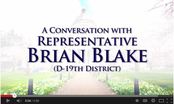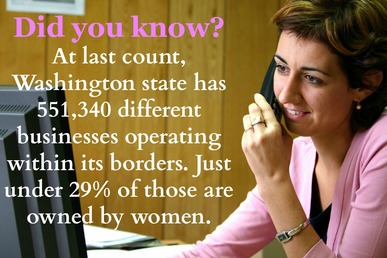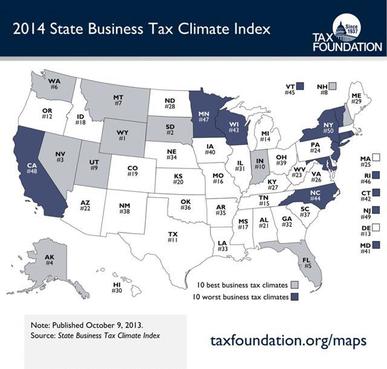The Legislature is already hitting cut-off deadlines as this short session approaches the half-way mark. Wednesday was the last day House policy committees could pass non-budget bills on to Rules or fiscal committees. Tuesday will be the last day that the fiscal committees can approve non-budgetary House bills, too. That means we will begin hearing bills that have been sent to us from the Senate.
I’m pleased to report that these prime-sponsored bills are still moving through the process:
HB 1156 – Consolidating designated forest lands and open space timber lands for ease of administration.
HB 2150 – Encouraging recreational access to private property.
HB 2151 – Concerning recreational trails.
HB 2168 – Concerning minimum room area and floor area square footage requirements for single-family residential areas.
I will keep you updated on their progress in the next few weeks.
Check out my video update
In last we ek’s Legislative Update I included information about the need to fund the Emergency Food Assistance Program. Currently, one in five Washingtonians are relying on food from their food bank, and 54 percent of those are children and seniors. This is a very important issue for me, so I decided to continue pushing for support.
ek’s Legislative Update I included information about the need to fund the Emergency Food Assistance Program. Currently, one in five Washingtonians are relying on food from their food bank, and 54 percent of those are children and seniors. This is a very important issue for me, so I decided to continue pushing for support.
Enforcing the rights of our veterans and service members
With approximately 640,000 veteran residents, Washington state has the 12th largest veteran population in the United States. When combined with the over 62,000 active duty military personnel and members of the National Guard and Reserve, veterans and military personnel account for more than 10 percent of Washington’s total population.
Did you know that a service member whose active duty orders are signed by the governor has fewer protections than one whose orders are signed by the President?
 It’s true, it’s irrational and it’s unfair to the men and women who put their lives at risk in defense of our nation and our freedom. It’s true, it’s irrational and it’s unfair to the men and women who put their lives at risk in defense of our nation and our freedom.
Not for long, though! This session, 35 House members from both sides of the aisle have teamed up with Governor Inslee and Attorney General Ferguson to right this wrong. This legislation will ensure our troops can carry out their jobs without having to worry about their cars being repossessed, their homes foreclosed on or their families evicted while they are making great personal sacrifices for our nation. The bill strengthens Washington’s Service Members’ Civil Relief Act (SCRA) by:
HB 2171 was passed unanimously by both the Judiciary committee and the Appropriations Subcommittee on General Government & Information Technology. |

What kind of business climate does Washington really have?
You hear it often: Small business is the backbone of our economy. For every Microsoft or Boeing or Nordstrom, there are dozens of individually owned dry cleaners and pet stores and plumbers and machine shops. If they have fewer than 50 employees, they’re officially “small businesses” in the eyes of the state. And they matter greatly.
Something else you might hear often is the myth that Washington state is not friendly to small businesses, even though they provide four out of 10 private-sector jobs in the state.
But when we look at some very unbiased studies, the happy fact is that Washington time and time again finds itself named on “best” list in terms of business climate, tax climate, regulatory climate . . . all the climates that determine whether a state is considered business-friendly.
 The studies and articles are out there, and easy to find. To skim across the top, here are a few: According to the conservative-leaning Tax Foundation, Washington has the sixth most business friendly tax climate in the nation. To add a little context, Texas doesn’t make the top 10, Idaho barely makes the top 20, and South Carolina is near the basement, in 37th place.
The studies and articles are out there, and easy to find. To skim across the top, here are a few: According to the conservative-leaning Tax Foundation, Washington has the sixth most business friendly tax climate in the nation. To add a little context, Texas doesn’t make the top 10, Idaho barely makes the top 20, and South Carolina is near the basement, in 37th place.
The most recent State of Entrepreneurship Index prepared by the University of Nebraska ranks Washington at number two in the nation for “entrepreneurship environment” and “growth in business formation.”
And the U.S. Chamber of Commerce put us at number eight in its survey of “Enterprising States,” which comes up with its results by factoring in, among other things, taxes and regulations, entrepreneurship, innovation, and a state’s “talent pipeline.”
Myths die hard. But the myth that Washington is anything but a great place to live, work, and do business, is fading fast. And that is good news!
Removing roadblocks to the democratic process

While other states are passing bills that suppress voter turnout, the House this week passed four crucial bills aimed at turning “one person-one vote” into a reality for every Washingtonian.
- House Bill 1267 changes the deadline for in-person and online voter-registration to 11 days before an election, and registrations sent by mail to 28 days before an election. Proponents believe moving the deadline up closer to the actual election will increase voter-turnout.
- House Bill 1103, requires the secretary of state to work with county auditors in developing a uniform ballot format for use in each of the state’s counties by 2022. Right now, only 10 of the 39 Washington counties have voting systems that require the voter to mark the ballot by filling in an oval.
- House Bill 1279, would allow 16- and 17-year-olds to preregister to vote when they apply for a driver’s license or identicard. Voter-registration information is already available at the Department of Licensing, and using it would make the registration process far more efficient. It’s very important to engage young people in the elections process as soon as possible.
- House Bill 1413, which is commonly known as the Voting Rights Act. The bill emphasizes equal voting opportunity in political subdivisions where communities of color have historically been disenfranchised. Citizens in every neighborhood should have the very same voice as any other neighborhood in their local elections. This measure prohibits the drawing of election districts in a manner that prevents members of a race, color, or language-group from electing candidates of their choice or exercising influence in an election.
Each of these measures also won House support in last year’s legislative session, only to die in the Senate. But I am hopeful they will find support in the other chamber this year.
ASK ME!
Don’t miss the second episode of ASK BRIAN!
As always, I appreciate your taking the time to read my legislative updates.
Sincerely,
![]()

